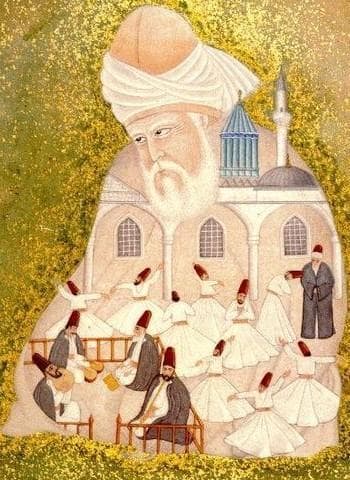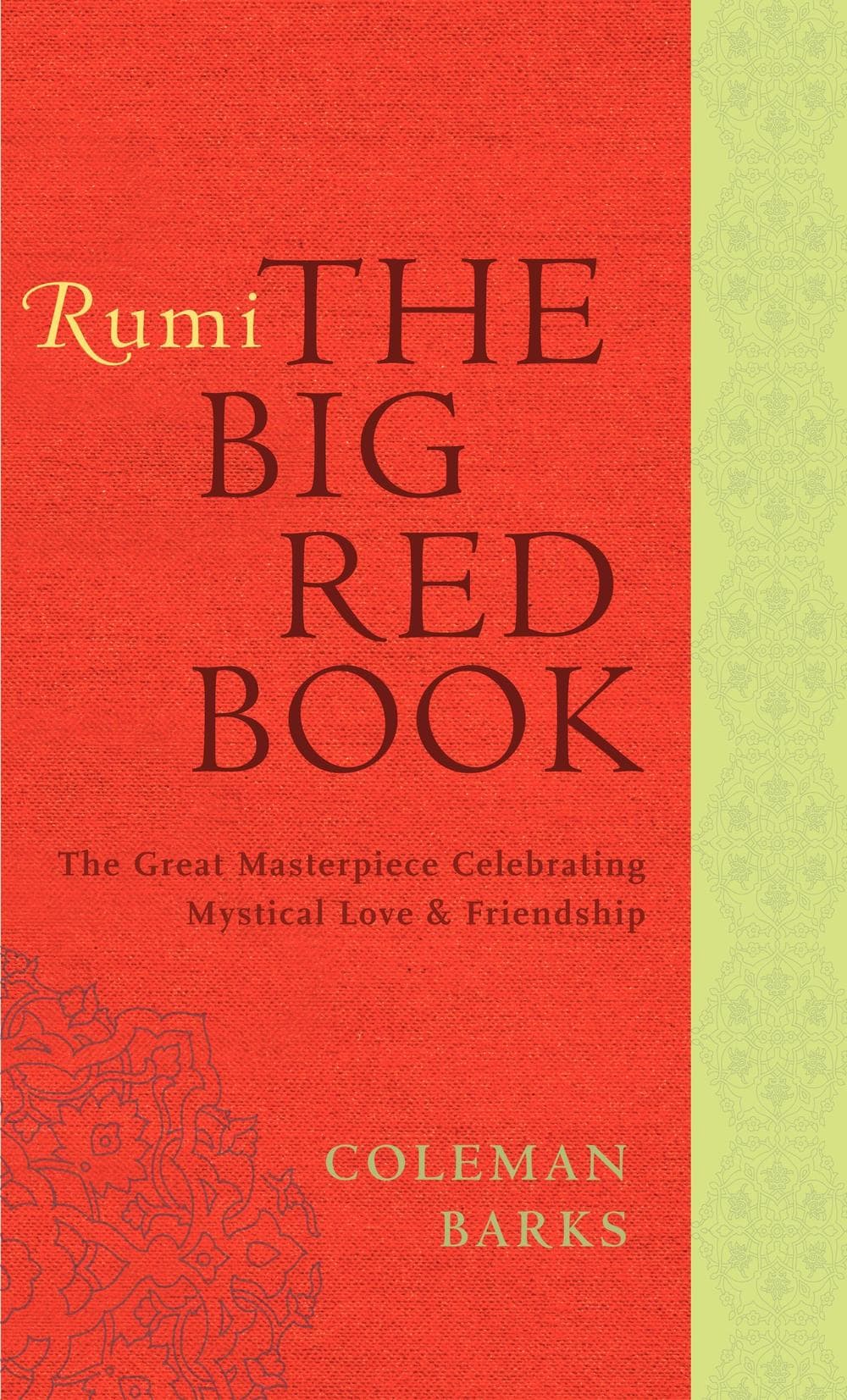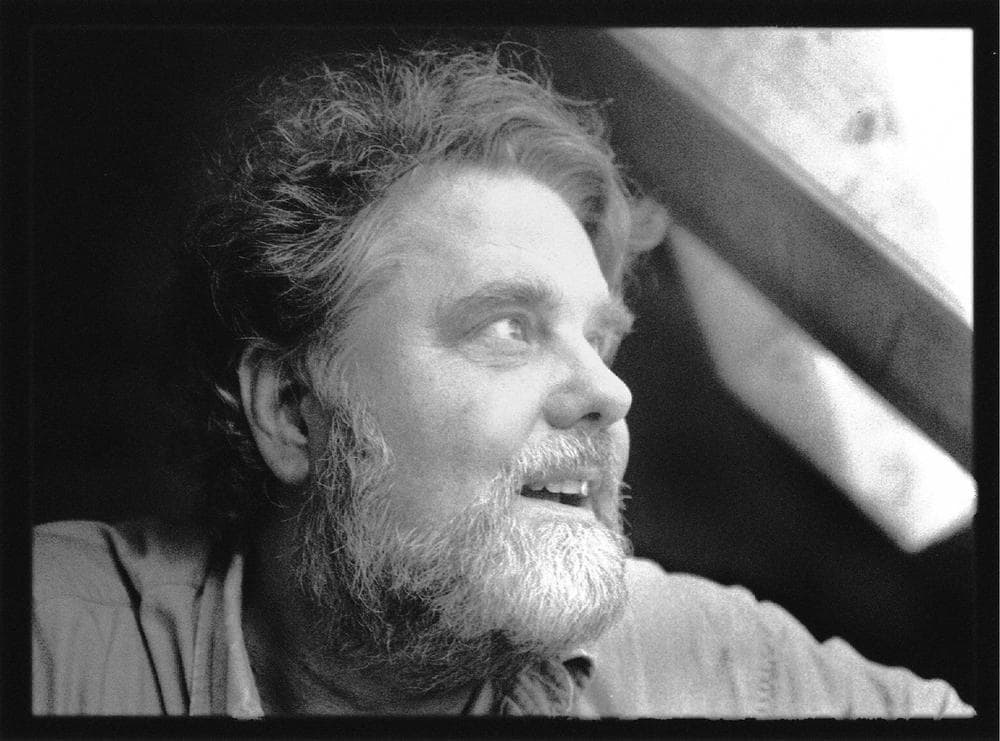Advertisement
Why Is The Muslim Mystic, Rumi, America’s Bestselling Poet?

Rumi, the 13th century Muslim mystic, is now America's bestselling poet. Amazon lists more than a hundred books of his poetry, and Hollywood stars like Madonna and Martin Sheen have made a CD of his writings.
Why do Americans love his poetry? And how do Muslims feel about his writing, which celebrates dancing, love and wine?
American poet Coleman Barks is the leading English language interpreter of Rumi's work. His new book is, "Rumi: The Big Red Book: The Great Masterpiece Celebrating Mystical Love and Friendship," excerpted below.
Book Excerpt: Rumi: The Big Red Book: The Great Masterpiece Celebrating Mystical Love and Friendship
By Coleman Barks
A COMMUNITY OF THE SPIRIT
There is a community of the spirit.
Join it, and feel the delight of walking in the noisy street
and being the noise.
Drink all your passion and be a disgrace.
Close both eyes to see with the other eye.
Open your hands if you want to be held.
Consider what you have been doing.
Why do you stay
with such a mean-spirited and dangerous partner?
For the security of having food. Admit it.
Here is a better arrangement.
Give up this life, and get a hundred new lives.
Sit down in this circle.
Quit acting like a wolf,
and feel the shepherd’s love filling you.
At night, your beloved wanders.
Do not take painkillers.
Tonight, no consolations.
And do not eat.
Advertisement
Close your mouth against food.
Taste the lover’s mouth in yours.
You moan, But she left me. He left me.
Twenty more will come.
Be empty of worrying.
Think of who created thought.
Why do you stay in prison
when the door is so wide open?
Move outside the tangle of fear-thinking.
Live in silence.
Flow down and down
in always widening rings of being.

UNFOLD YOUR OWN MYTH
Who gets up early to discover the moment light begins?
Who finds us here circling, bewildered like atoms?
Who comes to a spring thirsty
and sees the moon reflected in it?
Who like Jacob, blind with grief and age,
smells the shirt of his lost son and can see again?
Who lets a bucket down and brings up a flowing prophet?
Or, like Moses, goes for fire and finds what burns inside the
sunrise?
Jesus slips into a house to escape enemies
and opens a door to the other world.
Solomon cuts open a fish, and there is a gold ring.
Omar storms in to kill the Prophet and leaves with blessings.
Chase a deer and end up everywhere.
An oyster opens his mouth to swallow one drop.
Now there is a pearl.
A vagrant wanders empty ruins.
Suddenly he is wealthy.
But do not be satisfied with stories,
how things have gone with others.
Unfold your own myth,
without complicated explanations,
so everyone will understand the passage,
We have opened you.
Start walking toward Shams, the teacher, the sun.
Your legs will get heavy and tired.
Then comes a moment of feeling the wings you have grown,
lifting.
THE DEATH OF SALADIN
You left ground and sky weeping,
mind and soul full of grief.
No one can take your place in existence or in absence.
Both mourn, the angels, the prophets,
and this sadness I feel
has taken from me the taste of language,
so that I cannot say the flavor of my being apart.
The roof of the kingdom within has collapsed.
When I say the word you, I mean a hundred universes.
Pouring grief-water or secret dripping in the heart,
eyes in the head or eyes of the soul,
I saw yesterday that all of these
flow out to find you when you are not here.
That bright firebird Saladin went like an arrow,
and now the bow trembles and sobs.
If you know how to weep for human beings,
weep for Saladin.
SANAI
Someone says, Sanai is dead.
No small thing to say.
He was not bits of husk,
or a puddle that freezes overnight,
or a comb that cracks when you use it,
or a pod crushed open on the ground.
He was fine powder in a rough clay dish.
He knew what both worlds were worth:
A grain of barley.
One he slung down, the other up.
The inner soul, that presence of which most know nothing,
about which poets are so ambiguous,
he married that one to the beloved.
His pure gold wine pours on the thick wine dregs.
They mix and rise and separate again
to meet down the road.
Dear friend from Marghaz,
who lived in Rayy, in Rum, Kurd from the mountains,
each of us returns home.
Silk must not be compared with striped canvas.
Be quiet and clear now
like the final touch points of calligraphy.
Your name has been erased
from the roaring volume of speech.
Copyright © HarperOne, 2010.
This segment aired on January 18, 2011.